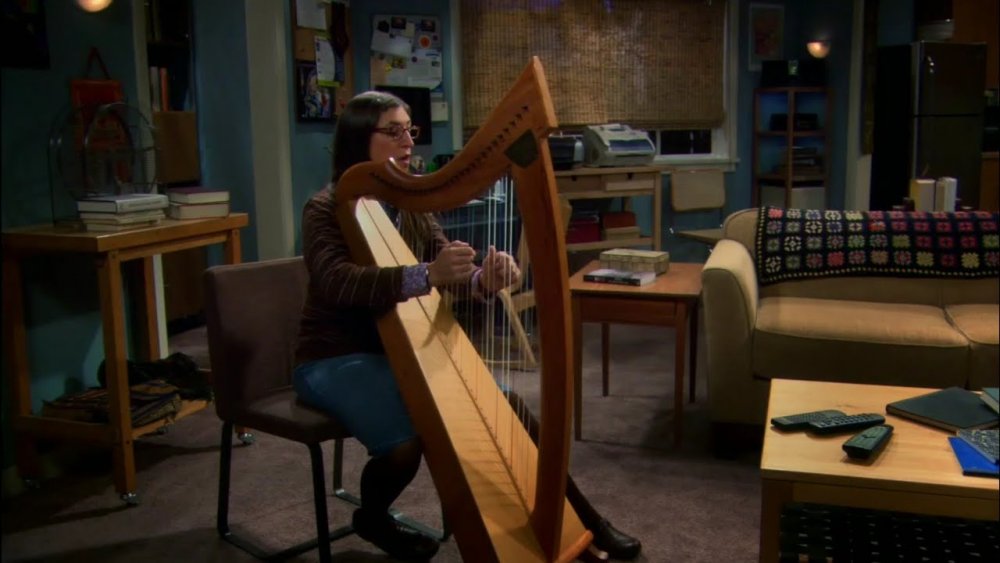Why 'Bazinga' From The Big Bang Theory Means More Than You Realize
For 12 seasons, The Big Bang Theory was one of the most popular sitcoms on television. Millions of people tuned into every episode to see the further exploits of a group of nerds who befriended an aspiring actress from across the hall. Created by comedy legends Chuck Lorre and Bill Prady, the show stars Johnny Galecki as Leonard, Kaley Cuoco as Penny, Simon Helberg as Howard, Kunal Nayyar as Raj, and — most famously — Jim Parsons and Sheldon.
The Big Bang Theory contributed a lot to the zeitgeist, but few things from the show caught on quite the way Sheldon's catchphrase, "bazinga," did. He'd often say it after one of his classic "pranks," which usually just amounted to him lying about something and then admitting he made it up. At first glance, "bazinga" seems like a pretty standard sitcom catchphrase, but as the series went on, the word began to take on a completely new meaning that may have gone over some fans' heads.
"Bazinga" is a reference to a seven-stringed harp from Ancient Egypt
Amy Fowler was introduced in the show's fourth season. When she first started, she was essentially a female version of Sheldon, but as the series went on, she grew into a more fleshed-out character who challenged Sheldon's backward ideas about intimacy and romance. Critics praised actress Mayim Bialik's (Blossom) portrayal of the character, and Bialik turned out to be perfectly suited for the role.
Bialik actually holds a PhD in neurobiology, and she can play piano, bass, and trumpet. And in an interview with Express, she revealed that she actually learned to play the harp for the series, too: "I did learn to play the harp rudimentarily. For the episode where Leonard and Penny get married, that is not me playing the harp. They wanted like an elaborate fancy thing, and I do not play well enough for that."
It makes sense to make a genius character proficient on a musical instrument. But why a harp? Turns out you need to look at an extremely obscure reference, namely The Decline and Fall of Practically Everybody by Will Cuppy, to understand the significance.
In the satirical book, amateur historian Will Cuppy refers to a seven-stringed harp used in Ancient Egypt as a "bazinga" (via Scribd). Leave it to the writers of The Big Bang Theory to find such a bizarre work and incorporate it on their show. Bazinga proves that Sheldon's connection with Amy was destined to happen.
"Bazinga" has another potential meaning
It's also possible "bazinga" originated somewhere else — somewhere a bit less sentimental. An actor by the name of Bo Zenga has played various character parts in the Star Trek franchise. Considering the four nerds' love of all things Star Trek, it would certainly make sense for Sheldon to appropriate an obscure actor's name for his own pleasure any time he pulls a practical joke on someone. This etymology is slightly less esoteric than the ancient harp, and it might actually make more sense within the series' internal logic.
No matter where it came from, bazinga will forever be associated with The Big Bang Theory. And it's going to live on in some pretty interesting ways. In 2012, Brazilian biologist Andre Nemesio christened a new species of orchid bee after the iconic catchphrase. From this point forward, the bee will be known as "Euglossa bazinga" (via Smithsonian Magazine).
The Big Bang Theory may be over, but with such iconic lines, it's destined to live on forever in the hearts and minds of fans.


